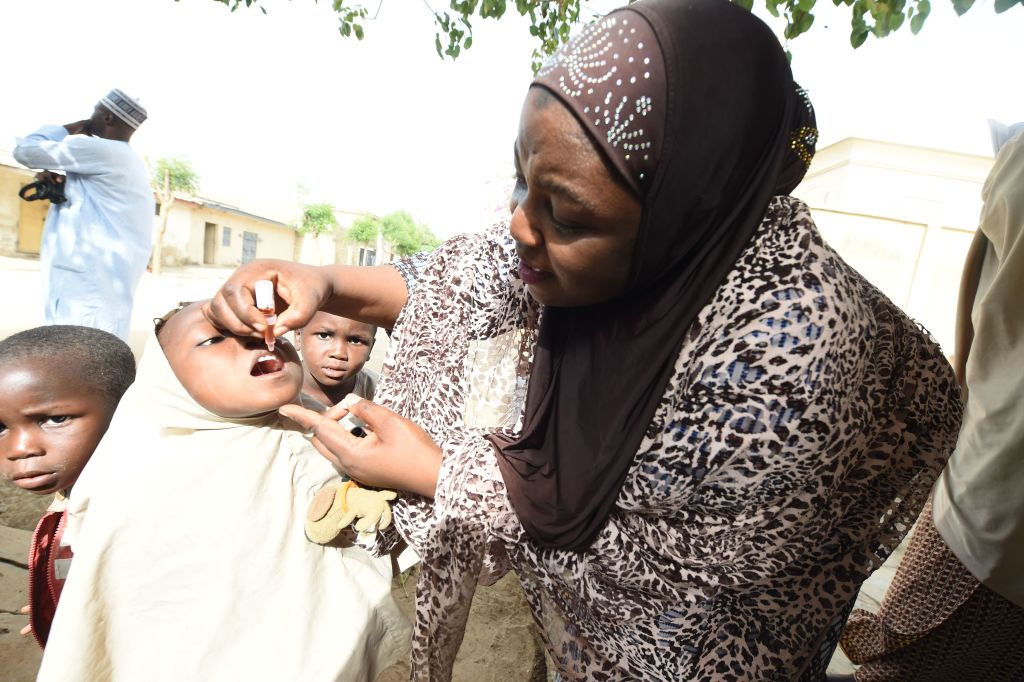When Nigeria was certified free of wild poliovirus five years ago, it was a moment of pride not just for our country, but for the whole African region. I still remember that day vividly. After decades of effort, we had achieved what many thought impossible. But I also remember what I said then: we can close one eye now, but not both. Complacency is dangerous. Even one new case means starting over.
[time-brightcove not-tgx=”true”]
Day after day, the work continues: tracing the virus through sewage samples in Lagos and Zamfara, responding to outbreaks in Sokoto, and reaching children through mass immunization in cities and remote villages. Just this month, Nigeria launched one of the largest integrated child health campaigns in its history, reaching millions of children with vaccines against polio, measles, and rubella, alongside other essential health services. It’s a sign of how far we’ve come, but also a reminder of how much coordination, trust, and persistence are still needed to reach every child.
What drives this work forward isn’t just data or logistics—it’s the relationships. Mothers who welcome health workers into their homes. Volunteers who walk miles to reach children. Local leaders who help mobilize their communities. And now, a group whose role has often been overlooked is strengthening these efforts: the wives of local government chairmen.
In many parts of Nigeria, the local government chairman is the closest thing to an elected mayor. These leaders know their communities intimately, and their wives often hold informal but significant influence: they are mothers, neighbors, and respected voices. They hold influence not only because of titles, but because of the trust they’ve built.
In Sokoto, one of the most challenging states for vaccine uptake, the Emergency Operations Center brought these women together to support immunization efforts last month. The idea was simple: If a mother hears from another mother she trusts—especially one connected to local leadership—she’s more likely to say yes to vaccination. And it worked. Resistance dropped. Doors opened. Conversations happened.
For years, we have involved traditional and religious leaders in our campaigns, and that’s made a tremendous difference. But this new strategy adds something unique. It’s woman to woman, mother to mother—trust built through familiarity, not authority.
Top-down campaigns or digital messaging alone can often fall short. What works is messaging that’s culturally grounded and delivered by people the community already trusts. That’s why Rotary members, also embedded in these same communities, have played a vital role in not just funding and organizing campaigns, but also dispelling doubts and ensuring no child is left behind.
Today, the most powerful force in the campaign are women vaccinators who go door to door—mothers who know every household. Even in places where women face barriers to participation, the trust they build within communities remains essential to reaching every child.
In some circumstances, cultural restrictions or security challenges limit women’s ability to take part in public-facing health activities such as door-to-door vaccination efforts. For example, in certain regions of Afghanistan, female health workers require a male chaperone to travel longer distances or are restricted from working altogether, making it difficult to sustain community-level outreach. Yet even in such settings, women continue to play essential roles, whether through informal networks, as trusted messengers within families, or by supporting access in less visible ways. Even where women face these constraints, their trust and local presence remain central to reaching children.
What began as a polio network has grown into a broader public health platform. These women aren’t just speaking about polio, they’re encouraging childhood vaccinations more broadly, promoting antenatal care, nutrition, maternal health, and supporting HIV testing. The surveillance systems built for polio now track a wider range of infectious diseases. This network, rooted in trust and community, must be strengthened even once polio is gone.
This is the hidden legacy of the polio program. It was never just about polio.
But challenges remain. Violent conflict, insurgency, and criminal activity still makes it unsafe for health teams to reach certain areas. In Nigeria, for example, states like Borno, Zamfara, and parts of Kaduna and Katsina have experienced ongoing insecurity due to armed insurgent groups and banditry, which can restrict or delay vaccination campaigns. These conditions may force health workers to suspend activities or reroute efforts, leaving pockets of children unreached, which in turn allows the virus to persist or resurge.
Misinformation also spreads faster than facts. You can have the best cold chain and all the vaccines, but if you can’t get those two drops into a child’s mouth, you won’t get anywhere.
When the global polio effort began in 1988, the virus was endemic in over 125 countries. Today, just two remain: Afghanistan and Pakistan. India and Nigeria were once seen as the hardest to reach, but both proved it could be done. That’s why I believe, with the right investment and commitment, they too can follow the path to eradication.
No child should be paralyzed by a preventable disease. That health is a right, not a privilege. We’re nearly there. But nearly is not enough. So until the final case is gone, I’ll keep doing what I’ve done for nearly 40 years.
And maybe, just maybe, when that day comes, I’ll finally be able to sleep with both eyes closed.

